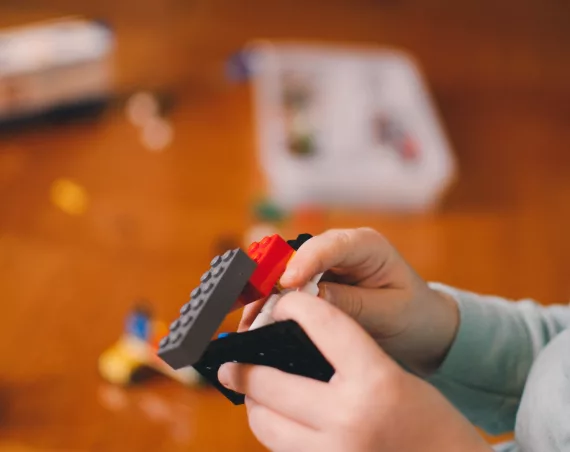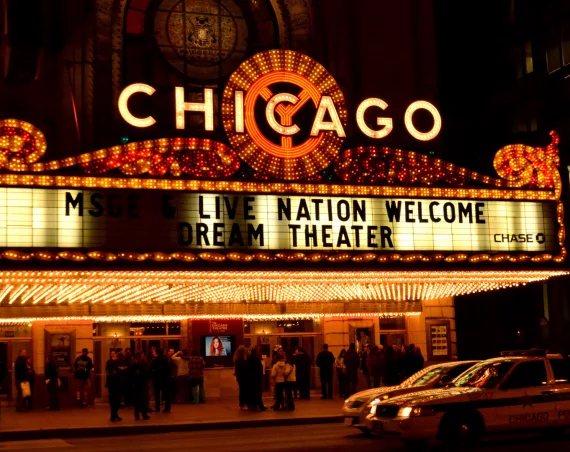
Protests and protesters
Powered by RedCircle
Hello and welcome to Learn English Vocabulary. My name is Jack and I’m making this podcast for you to learn or revise English vocabulary. You can find a transcript of this podcast on LearnEnglishVocabulary.co.uk. There’s a page for this podcast with the transcript, an activity and a task for you to do in the comments section.
I have been asked to make a podcast on what’s happening in Iran right now and particularly about the death of Mahsa Amini. So I want to make this podcast about the language of protest and protesters but I also want to start by saying that this is a language podcast and not a political podcast. That’s not to say that I don’t have views, I do and I have been shocked and appalled and also inspired by some of the stories I’ve seen coming out of Iran. There have been some amazing acts of courage and I would love to be able to visit Iran. It’s just that I am not a journalist and I haven’t done enough research to share my personal views. What I want to do in this podcast, is present you with the language you need to read news reports and articles and opinions written by people who have done the research or who have direct experience and know more about these things.
I have been through some articles on different news websites and have made a list of the most important vocabulary. The words I’m going to talk about today are: to protest, a protest and a protester, to oppose and opposition, to support, supporters, activists, to go on strike, negotiations, demands, to spread a message, citizen journalists, a diplomatic solution, and crackdown. This vocabulary is quite mixed in terms of level with some items at B1 and one at C2. I think that this podcast will be most useful for learners at B2 – C1 and I’ll put it in the B2 section on the Learn English Vocabulary website.
I’m going to start with the verb to protest. This means to complain about something, usually publicly. Most commonly people protest at public meetings which are called protests. Can you hear the difference in the pronunciation. The stress shifts and so in the verb, the first vowel sound is weak. Pro … protest. And in the noun, the stress is on the first syllable so the vowel sound is strong. Pro – protest. You protest at a protest. And the people who protest are called protesters. I have been on a few protest marches in London. I find the word march quite fun here because it’s normally used to describe the way that soldiers walk. Soldiers march. To march as a variety of walking means to walk quickly and with a purposeful attitude. But if you go on a march, you meet with your fellow protesters and then everybody walks along a route. The last march I went on started at Hyde Park in London. Everybody met there first. Some people had banners and signs that they held on the march. It finished in Parliament Square. When you are on a march, you actually walk very slowly, it’s more of a stroll.
When people join a protest, it’s usually because they are either for or against an idea or a political system or organisation. If you are against an idea you oppose the idea. If you are for an idea, you support the idea. So a group of protesters might go on a protest march because they oppose something that their government is doing. When I last went on a march, it was in support of an idea. When lots of people oppose an idea, we often use the noun opposition. This means the total disagreement or all the feelings against the idea. So you can say that there has been a lot of opposition to an idea or a proposal. If you want to talk about the general feelings in support of an idea, you can just say the support. You might hear that a politician has a lot of support or that they are campaigning, they are meeting people and organising events to drum up support for their candidacy. To drum up support for an idea or a proposal or political candidate means to do things to increase the amount of support that the idea or proposal or political candidate has. So if you are for something, you support the thing and you could be called a supporter. If you are against something, you oppose it. We don’t really use the word opposer; it’s a real word, but we don’t use it like we use the word supporter.
If you are a really strong supporter, so much that you take part in protests and do other things, perhaps hand out leaflets or write letters to politicians then you are an activist. Another way to describe the activities that an activist takes part in is direct action. The word activist is slightly spicy because often people think of violent activists or political extremists. In the UK at the moment, there are quite a lot of activists who are taking direct action to make people think about how we use oil and the damage we are doing to the planet. They are blocking roads and not everyone supports what they are doing.
One common form of direct action is to go on strike. This means to refuse to work. So today there is a story in the news in the UK about teachers who have voted to reject a small pay rise and who are planning to go on strike if the government does not increase their offer. If teachers go on strike, children will have to stay at home so lots of people won’t be able to work. There are lots of strikes in the UK at the moment.
Now, when a group of protesters or activists takes part in direct action, there is always an objective, there’s something they want. These are their demands. So when there’s a strike, the workers refuse to go back to work until their demands are met, that is until they get what they want. I don’t think that protesters often get exactly what they want, at least not in the UK, but sometimes the government or other organisation agrees to discuss the demands to try to see if there is a compromise, that is, if there is a way the demands can be reduced so that everyone is satisfied. These talks are called negotiations. The verb negotiate means to make something happen by talking, through discussion. So when protesters have demands, they may meet with the organisation they are protesting against and negotiate. If the negotiations are successful, the protest will finish.
A useful phrase to talk about a successful negotiation is a diplomatic solution. So the adjective diplomatic comes from the official representatives of countries who manage the relationships between their nations. Diplomats get together and discuss matters that affect their countries and they are very good at being diplomatic. If you are diplomatic, you do things in a way that does not cause offence, that does not make people angry. A diplomatic solution happens when a negotiation is successful and everybody is satisfied. I don’t think these solutions make people happy, but at least they aren’t angry.
Earlier, I mentioned that there are groups of environmental activists who are taking direct action at the moment in the UK. They want people to stop using private vehicles and to stop burning oil, but that’s the end goal of their protest. The short term goal is to raise awareness of the topic. The word raise means to make something higher. Awareness is the level of knowledge about a topic in the general public. If you raise awareness, you make more people know about the topic. Another phrase that comes up in stories about these protesters is to spread a message. So a message is just information that is passed to another person. Texts on mobile phones are short messages. We also use the word to talk about the main meaning of a film or story. I think that when protesters are trying to spread a message, the word message has both those meanings. On the one hand, it’s just information that they want other people to know, on the other hand, there’s a key meaning behind their action.
One of the phrases I’ve seen a lot in news stories about Iran is citizen journalists. I think that this is quite a new phenomenon, but will be more common in the future. So a journalist is normally someone who collects information about events and reports back to a newspaper or news channel. These people are professionals. A citizen journalist means a regular person who collects information and shares it, usually online. There has been a lot of debate about twitter recently, and I heard one journalist say that Twitter is essential because it is where people share photos and videos. So for getting information about situations and events happening in places that professional journalists are not allowed to go, Twitter is very important. And the people who record videos and share pictures and stories are called citizen journalists.
The last word I want to talk about today is crackdown. This is quite a dramatic sounding word and is used when an organisation tries to deal with a problem in a very severe way. So I just searched news sites for examples and there are crackdowns on bad trading practices. The German government is considering a crackdown on eco-activists after a cyclist was killed. Government crackdowns are probably the most common and will involve the police really focusing on one problem for a while.
OK. I’ve just spoken about 15 words and phrases related to protests. I’m now going to do something that I do in another podcast I work on for the British Council. I’m going to challenge you to remember this vocabulary by reading you 10 sentences with gaps in them. I’ll read each sentence twice and I want you to try to think of the correct word or phrase from the language that I’ve spoken about today. If this is too tricky to do just listening, you can find the transcript and an interactive version of this gap fill on the Learn English Vocabulary website on the page for this podcast.
Number 1. All of the ________ groups are coming together to form huge protests.
All of the ________ groups are coming together to form huge protests.
Number 2. Anti-government ________ have entered an eighth week.
Anti-government ________ have entered an eighth week.
Number 3: A ________ was badly beaten by government forces.
A ________ was badly beaten by government forces.
Number 4: In an incredible act of courage, a famous actress became an ________ when she posted an image on her instagram account.
In an incredible act of courage, a famous actress became an ________ when she posted an image on her instagram account.
Number 5: Shopkeepers and factory workers in Iran have gone ________ as widespread protests raged across the country.
Shopkeepers and factory workers in Iran have gone ________ as widespread protests raged across the country.
Number 6: Three _________ ________ were arrested after the authorities claimed they were acting as foreign agents.
Three _________ ________ were arrested after the authorities claimed they were acting as foreign agents.
Number 7: The protests will continue if the authorities do not listen to the ________ of the people.
The protests will continue if the authority does not listen to the ________ of the people.
Number 8: University students have staged sit down strikes in ________ of the anti-government protests.
University students have staged sit down strikes in ________ of the anti-government protests.
Number 9: Despite the brutal ________, the strikes and demonstrations continue.
Despite the brutal ________, the strikes and demonstrations continue.
Number 10: The more I read about the situation, the less confidence I have in the chance of a _________ ________ .
The more I read about the situation, the less confidence I have in the chance of a _________ ________ .
OK – I hope that this podcast is useful and that this vocabulary will help you read and understand the stories coming out of Iran and other stories about protests and activists around the world.
Before I finish, I want to apologise for taking so long between podcasts. You see, I have been very busy working on projects for other organisations that, well that paye me, and I’ve also been really busy working on my new project English Focus. I’m delighted to see that so many people have completed the placement test and that I’ve had some really great support from some listeners to this podcast. I’m still working out the final bugs with the developers but will open some classes soon.
I really hope I’ll have some more time soon to work on the new website and spend some more time making podcasts here. So … If there are any topics or songs or scenes from a film that you would like me to talk about or anything else you would like to hear, I would be delighted to make a podcast for you.
So please visit LearnEnglishVocabulary.co.uk and say hello.
Thanks for listening.





2 Comments
Arian
Hello dear Jack
I’m so glad to hearing you
We are in iran under extreme opperess and restricted internet.
But we always find a way to listening yor podcast.
Thanks to support us , We all belong to Earth, with no border…
And all people around the world have to got freedom.
of course you know , good is finally victor..
Mahfozur Rahman Niloy
Thank you for everything…